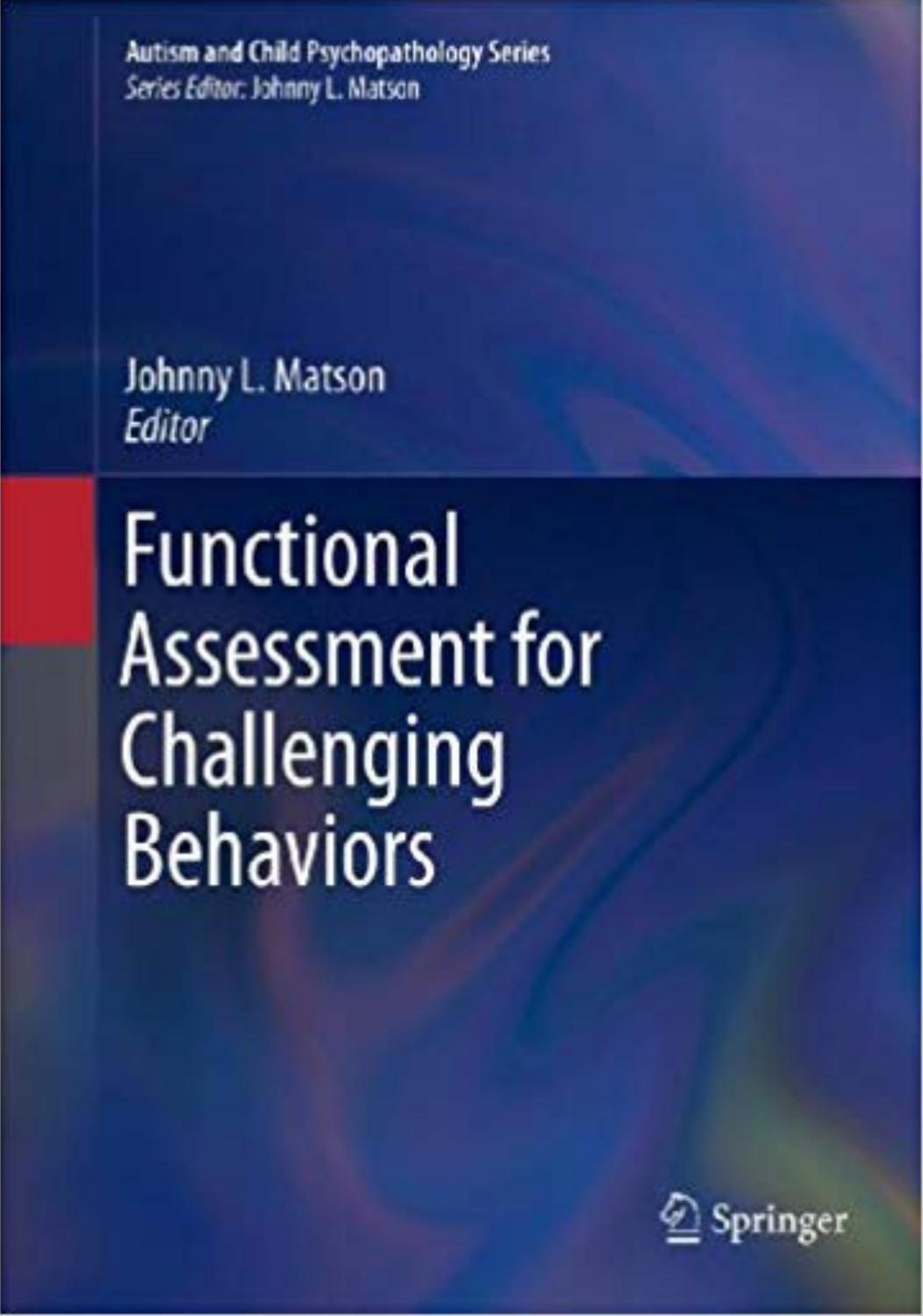Functional Assessment for Challenging Behaviors by Johnny L. Matson

Author:Johnny L. Matson
Language: eng
Format: epub, pdf
Publisher: Springer New York, New York, NY
Overview of Interviews in Functional Behavioral Assessment
Given that interviews are among the most popular method of functional behavioral assessment, attention needs to be given to their potential use in identifying maintaining variables of challenging behaviors and aiding in implementation of appropriate interventions. To date, minimal research has been conducted on the psychometric properties of various interviews, and the results of studies that have been completed are relatively inconsistent with one another. While some have found parent, caregiver, and/or teacher interviews to be quite beneficial in identifying the function of challenging behaviors (e.g., Cunningham & O’Neill, 2000; McIntosh et al., 2008; Newcomer & Lewis, 2004), others tend to find that these assessment methods are invalid (e.g., Alter et al., 2008).
Many variables may play a role in the differences found between studies. O’Neill and colleagues (1997) assert that the FAIF should be administered by a professional with training in functional assessment. Although this is a relatively undisputable claim with respect to all functional assessment methods, it appears appropriate to say that this may hold even more truth for functional assessment interviews, as opposed to rating scales, due to the unstructured nature of the assessment process as well as the clinical judgment needed to interpret the results. While the FAIF and other interview methods are exceedingly thorough, they produces a much more complex set of data when compared with rating scales due to the open-ended format of the interview as well as the lack of a scoring algorithm (Sturmey, 1994). Therefore, it is possible that the findings of studies differed based on the training of those administering the interviews. In fact, despite its popular use, research has also identified interviews to be the assessment method with which clinicians have had the least amount of training (Ellingson et al., 1999). Furthermore, when asked to rate how easy different functional behavioral assessment strategies were to use, interviews were rated as being more difficult to use than scaling methods and direct observations. Interviews were also rated less effective in determining the function(s) of behavior and less useful when compared with EFA and direct observation, but to be more effective and more useful in comparison to rating scales. In addition to these concerns about interviews overall, another major limitation of interviews is that they rely on retrospective report.
The utility of interviews in functional behavioral assessment does not solely rely on the specific interview administered nor its psychometrics but also the respondent participating in the interview process. Borgmeier and Horner (2006) investigated the predictive validity of confidence ratings made by the respondents. A total of 63 teachers and staff participated in completing the FACTS for nine students. Five to eight teachers or staff completed the interview for each of the nine students, all of whom varied in their exposure to the student during the school day, exposure to the student during periods when the targeted challenging behavior most commonly occurred, and self-assessed experience with functional behavioral assessment. At the conclusion of the interview, the teachers and staff were
Download
Functional Assessment for Challenging Behaviors by Johnny L. Matson.pdf
This site does not store any files on its server. We only index and link to content provided by other sites. Please contact the content providers to delete copyright contents if any and email us, we'll remove relevant links or contents immediately.
When Breath Becomes Air by Paul Kalanithi(7264)
Why We Sleep: Unlocking the Power of Sleep and Dreams by Matthew Walker(5642)
Paper Towns by Green John(4169)
The Immortal Life of Henrietta Lacks by Rebecca Skloot(3826)
The Sports Rules Book by Human Kinetics(3588)
Dynamic Alignment Through Imagery by Eric Franklin(3489)
ACSM's Complete Guide to Fitness & Health by ACSM(3469)
Kaplan MCAT Organic Chemistry Review: Created for MCAT 2015 (Kaplan Test Prep) by Kaplan(3423)
Introduction to Kinesiology by Shirl J. Hoffman(3301)
Livewired by David Eagleman(3122)
The River of Consciousness by Oliver Sacks(2992)
Alchemy and Alchemists by C. J. S. Thompson(2911)
The Death of the Heart by Elizabeth Bowen(2901)
Descartes' Error by Antonio Damasio(2731)
Bad Pharma by Ben Goldacre(2730)
Kaplan MCAT Behavioral Sciences Review: Created for MCAT 2015 (Kaplan Test Prep) by Kaplan(2492)
The Gene: An Intimate History by Siddhartha Mukherjee(2491)
The Fate of Rome: Climate, Disease, and the End of an Empire (The Princeton History of the Ancient World) by Kyle Harper(2436)
The Emperor of All Maladies: A Biography of Cancer by Siddhartha Mukherjee(2431)
